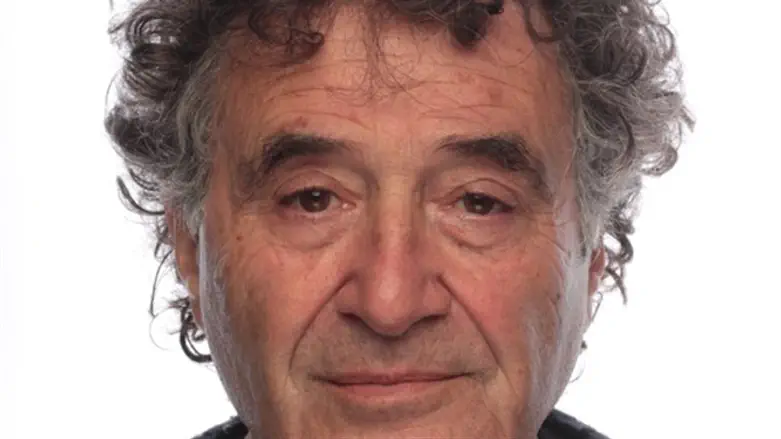
Manfred Gerstenfeld interviews Rudolf van den Berg
"Movies and art in general can give form to issues which require more than just common sense. I am not a psychologist but my film making must come from somewhere.”
The Dutch Jewish filmmaker Rudolf van den Berg was born in 1949. His parents survived the Second World War in hiding. He has directed both documentaries and feature films, several of which have Jewish themes. A number of his movies have also been shown in the United States. He has won four Golden Calves, the most prestigious Dutch movie award.
"Initially I worked as a reasonably successful documentary director for television. My first movie with a Jewish theme, The Place of the Stranger, investigated what the notion 'Jew' meant. In 1982, I made a movie about Dutch Jewish revolutionary, Sal Santen. He was one of the leaders of the Trotskyite Fourth International.
"This film had no political message. What fascinated me about Santen was how he dealt with the aftermath of the Holocaust. His parents and brother had been murdered. He felt duty bound to avenge their deaths by improving the world. I didn't share his views but liked his congenial naiveté. For this documentary, I received my first Golden Calf.
"Shortly after, I met Dutch Jewish author, Leon de Winter. We became friends. He published a novel titled, Place de la Bastille. The book’s main character looks at a picture of his mistress. He thinks that in its background he recognizes his brother who was murdered in the Holocaust. He goes in vain to Paris to search for him.
“This story became my first feature film. Once again I received a Golden Calf award for best director. As a result of this successful debut I was able to continue making feature films. In 1996 and 1997, I directed another movie with a Holocaust theme. This film was based on an idea of mine. The English language movie made with English actors was titled, Goodnight Vienna. It brought me my third Golden Calf.
"This movie was a grim story about a standup comedian in Vienna who tries to get rid of the demons of his past and the Holocaust. The essential theme of the movie is that the harder you try to get rid of history, the stronger it rebounds.
"I don't remember if I had already left the phase of my life of 'getting rid of it' behind me or whether by making the movie I could not shake the past off. One has to live with it and give it form.
“In 2008, I made a documentary about the art of Dutch Jewish painter, Leo Schatz. He survived the war without hiding and was active in the resistance movement. Even today, the Jewish resistance is an underexposed facet of the German occupation of the Netherlands. One still hears 'the Jews just let themselves be deported.' That is an extremely distorted summary of what happened.
"With my 2012 feature film, Süskind, I returned to an exceptionally problematic Jewish theme. Walter Süskind collaborated with the Germans as director of the Dutch Theater where Amsterdam Jews were assembled to be sent to the transit camp Westerbork. He received this assignment from the Jewish Council.
"What I call the 'Declining Plane' fascinated me. Sometimes there is little separation between good and evil. Süskind has often been remembered very negatively. When my father heard that I was making this film, he reacted: 'a movie about that scum?'
"Süskind took the job in the Dutch Theater to protect his family. At the beginning of the war, his only daughter was four years old. Süskind discovered that the story about the Jews who were deported from Westerbork to the East to work there was false. He realized the true nature of their final destination. Süskind then created a clandestine network to save as many children as possible. In order to do so he gave the impression of collaborating with the SS. That meant getting his hands dirty.
"I find him a courageous man. I made that movie out of the feeling that there must be someone who tells his story. It should not disappear. In directing such a movie, one doesn't escape the resonance from aspects of one’s own existence: what would I have done under those circumstances? How does one protect one’s children? When a total disaster such as the Holocaust occurs, the nuance between good and evil disappears. Probably, like Süskind I would have been willing to dirty my hands to enable my children to survive.
"For the past 10 years, I have been preparing a feature film about Spinoza. Such a subject requires a certain intelligence on the part of the public. That doesn't make financing a movie any easier. Yet, I am optimistic that I can begin directing this film in the foreseeable future."